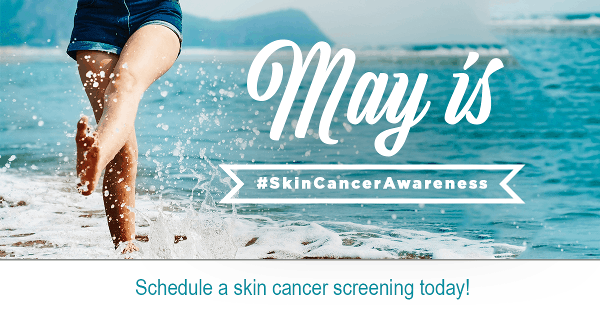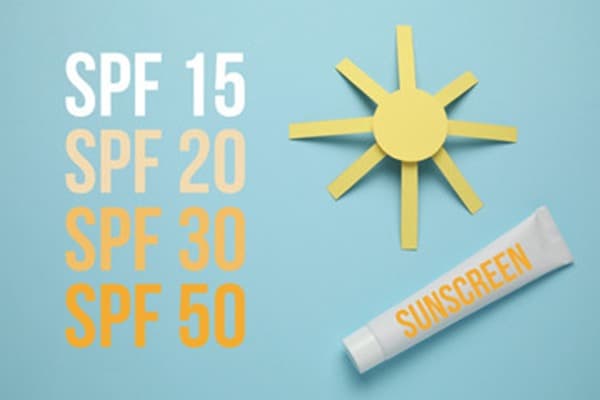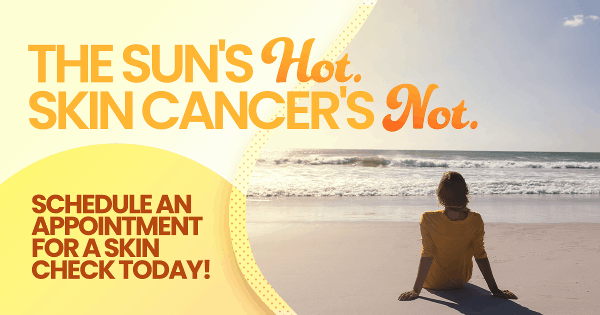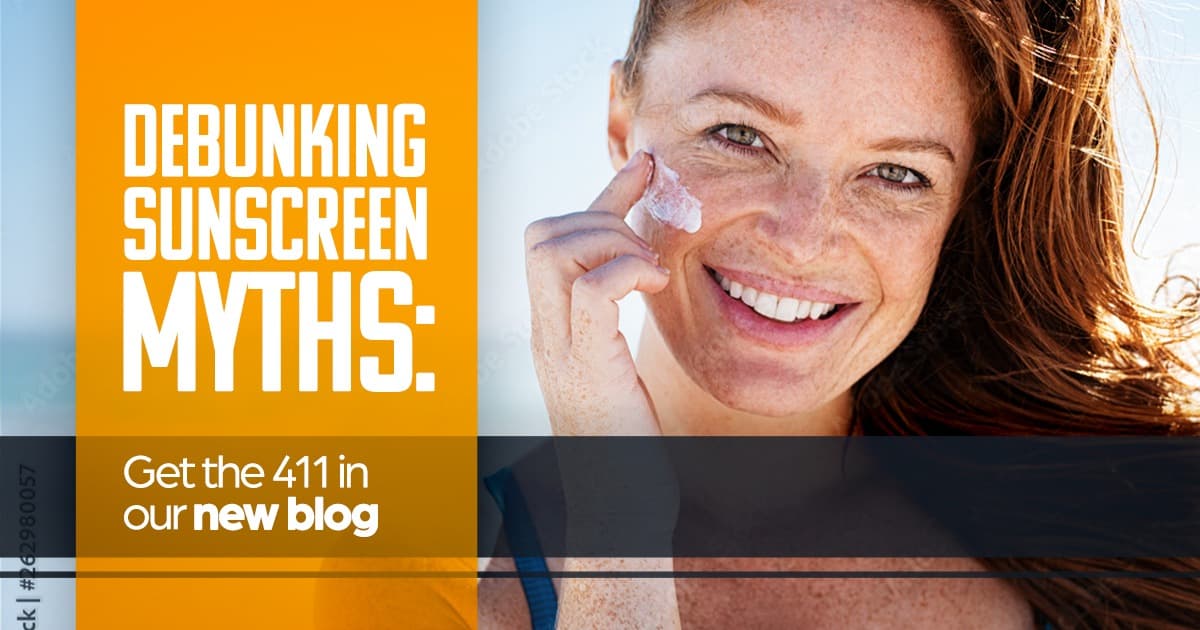Skin cancer is the most common cancer in America, with more than 5 million cases each year. With most skin cancers being caused by the sun, it’s time to brush up on our sunscreen facts. There is still a lot of misinformation about protecting your skin from the sun, and the stakes could not be higher. May is Skin Cancer Awareness Month, and in honor of this annual initiative, we are debunking sunscreen myths.

Myth: The higher the SPF, the stronger the protection.
Fact: Although there are varying degrees of SPF levels in sunscreen available, no sunscreen, no matter the SPF, blocks 100% of the sun’s rays. Additionally, an SPF of 100 will only give you 1-2 percent more protection than an SPF of 30, which blocks up to 97% of the sun’s rays. Finally, the SPF does not affect how long the protection lasts. Most sunscreens last 2 hours or less when properly applied. They also need to be re-applied once protection runs out and after swimming, sweating, etc.

In addition, if you’re using a foundation with at least an SPF 30 on your face, it will not protect you all day in the sun. Other sun-prone areas you don’t typically put foundation need protection too. Your ears, throat, and back of the neck are examples. So even if your makeup has an SPF, be sure to use a traditional sunscreen as well.
Myth: You don’t have to use sunscreen when it’s cloudy.
Fact: Even on cloudy days, up to 90% of the sun’s rays can still penetrate your skin, so you need to wear sunscreen when you’re outside, period. Windows and clothing are other great points. UVB sun rays cannot penetrate glass, but UVA ones can. Covering your skin with clothing is another good way to protect it, but dark, thicker fabrics absorb more of the sun and are a better defense. You can also wear clothing with a UPF rating of 30 or higher.
Myth: My skin is dark, so I don’t need sunscreen.
Fact: The American Academy of Dermatology said it best, “anyone can get skin cancer, regardless of age, gender or race.” Bottom line, wear sunscreen!
#SkinCheckChallenge
Skin cancer strikes one in five people by age 70. However, 99% of all cases are curable with early diagnosis and treatment. Skin cancer is a type of cancer you can see with your eyes. Monthly self-skin checks are head-to-toe exams that can help you spot any concerning growths early on. Talk to your dermatologist immediately if you find anything new, changing, or unusual.

So, grab a friend or family member and take the #skincheckchallenge this month. If you find something concerning, we’re here to help. The dermatologists here at Alamo Heights Dermatology are board-certified and experts in detecting and treating skin cancers and other conditions that affect the skin. Call us for an appointment today at (210) 255-8447, or submit a request online!
Sources:
https://www.cancercenter.com/community/blog/2021/06/busting-myths-sun-safety
https://www.cdc.gov/cancer/dcpc/resources/features/skincancer/index.htm
https://www.skincancer.org/skin-cancer-information/skin-cancer-facts/

